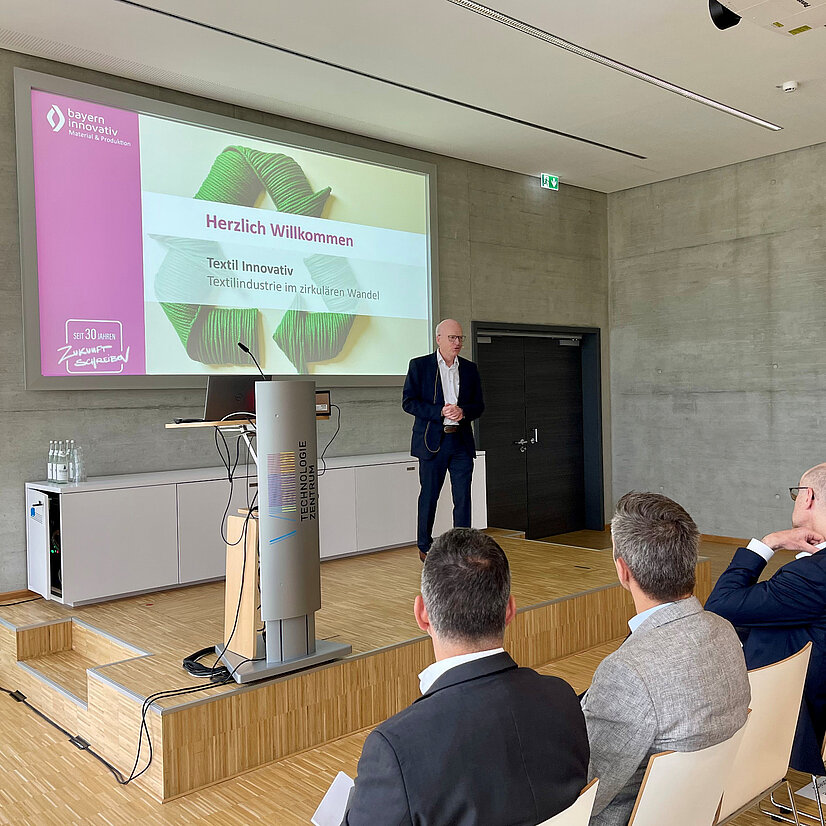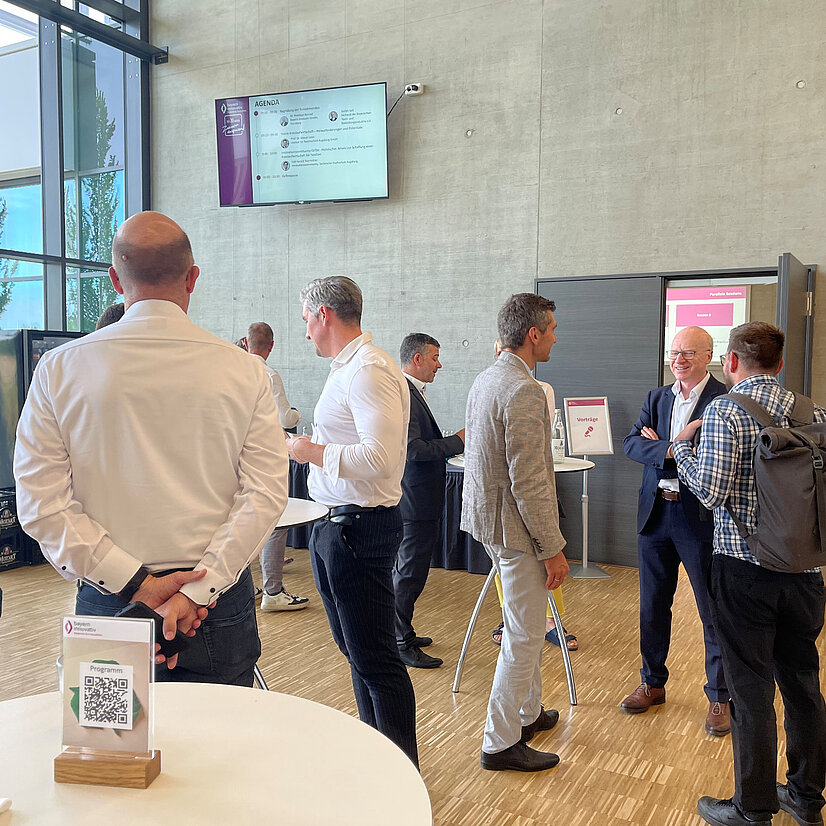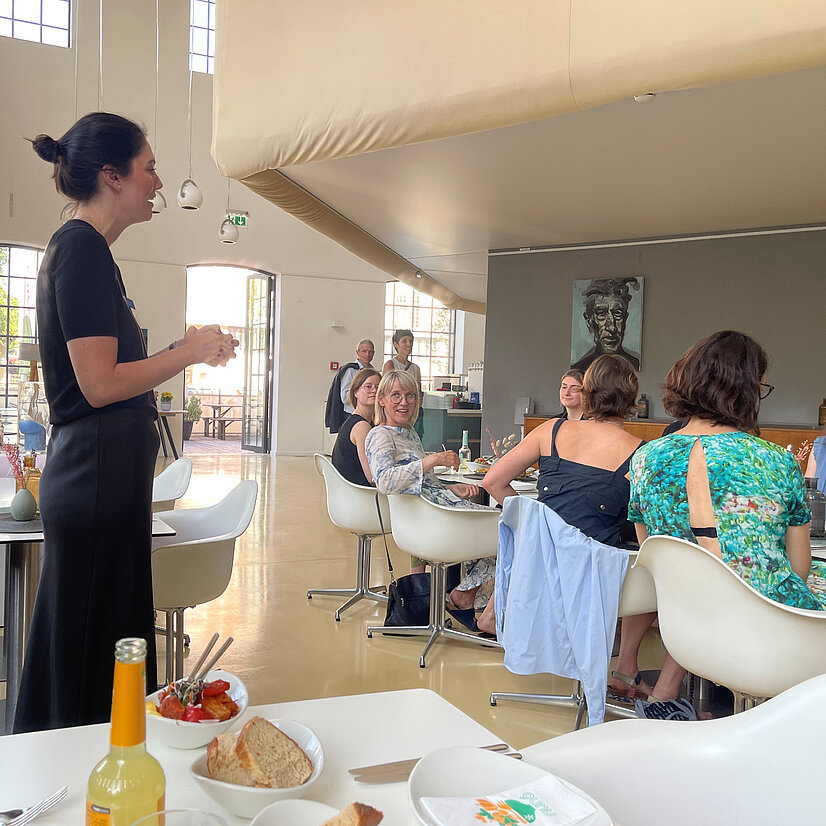17.07.2025
On June 26, 2025, the Augsburg Technology Center once again became a meeting place for trendsetters from the textile industry. Under the title "Textile Innovative - Textile Industry in Circular Change", the event brought together experts from business, science and politics to discuss key future issues relating to the textile circular economy.
The dinner the evening before at the State Textile and Industry Museum provided the setting for personal discussions and professional exchanges in a relaxed atmosphere. The conference day on the following day then offered a packed program with keynote speeches, best practice examples, a panel discussion and an accompanying exhibition.
Textile circular economy: between aspiration and feasibility
The event focused on the question: How can the transformation to a circular textile industry succeed? It became clear that this transformation places numerous demands on processes, products and partnerships - but also offers great opportunities for innovation and new business models.
One example of this is the development in the field of mechanical recycling, in which Augsburg plays an important role. With the Recycling Atelier, the region has an exemplary facility in which mechanical recycling is implemented in a practical way and thought about along the entire process chain. Here, research, industry and practice work closely together to test concrete solutions - for example for sorting, processing and further processing textile materials.
Topics such as standardization, digital traceability and the need for a clear regulatory framework were also discussed. Although material diversity, purity of type and the availability of suitable used textiles continue to pose challenges, it is precisely these that provide impetus for technological developments that can contribute to the transformation of the industry.
Impulses, exchange, network
The event was more than just a place to impart knowledge. Above all, it also served to network and establish contacts. Between presentations and discussions at the exhibition, there was space to discuss common challenges and ideas for cooperation - particularly in the context of the Circular Textiles Innovation Network (DATIpilot).
It became clear that the circular economy cannot be mastered single-handedly: partnerships at eye level are needed - between industry, research, politics and associations; as well as a common understanding of responsibilities along the entire textile value chain.
Conclusion: shaping the future of textiles together
Textil Innovativ 2025 has impressively demonstrated how much innovative strength and willingness to change there is in the industry. However, the challenges - from take-back infrastructures to recycling and social acceptance - are complex and can only be overcome together.
That's why events like this are so important: they create inspiration, enable professional exchange and promote networking between stakeholders who want to shape the textile transformation together. Recycling runs through the entire textile value chain - and only works if we work together.


